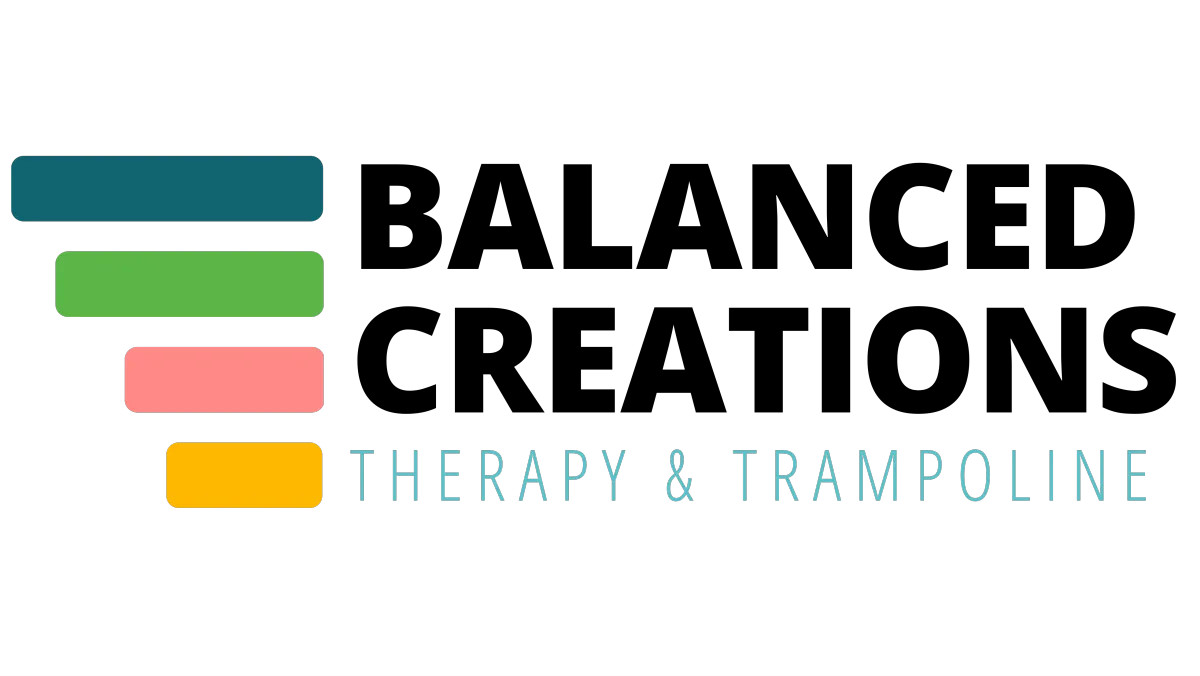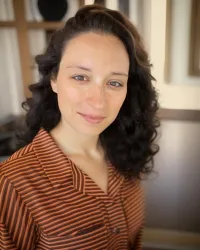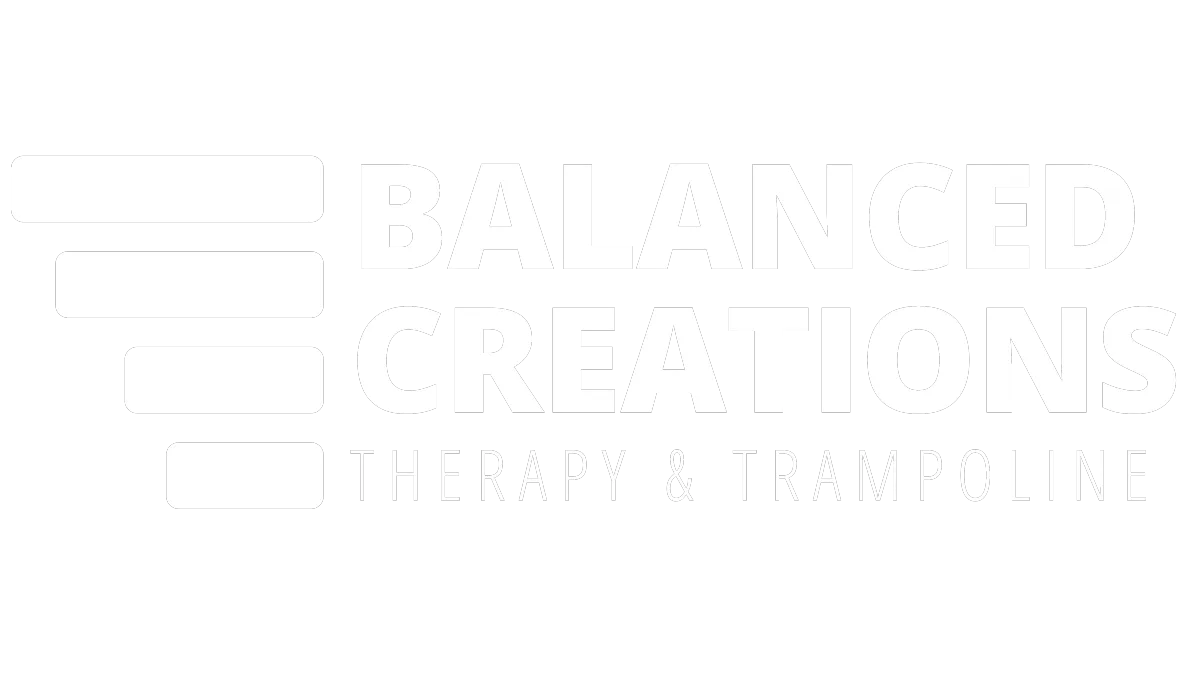Empowering Kids Through Adaptive Gymnastics & Therapeutic Trampoline
Explore our play-based, child-led, neurodiversity-affirming physical therapy, adaptive gymnastics & trampoline services tailored for children & their families
in Fort Worth, Aledo, and Parker County.
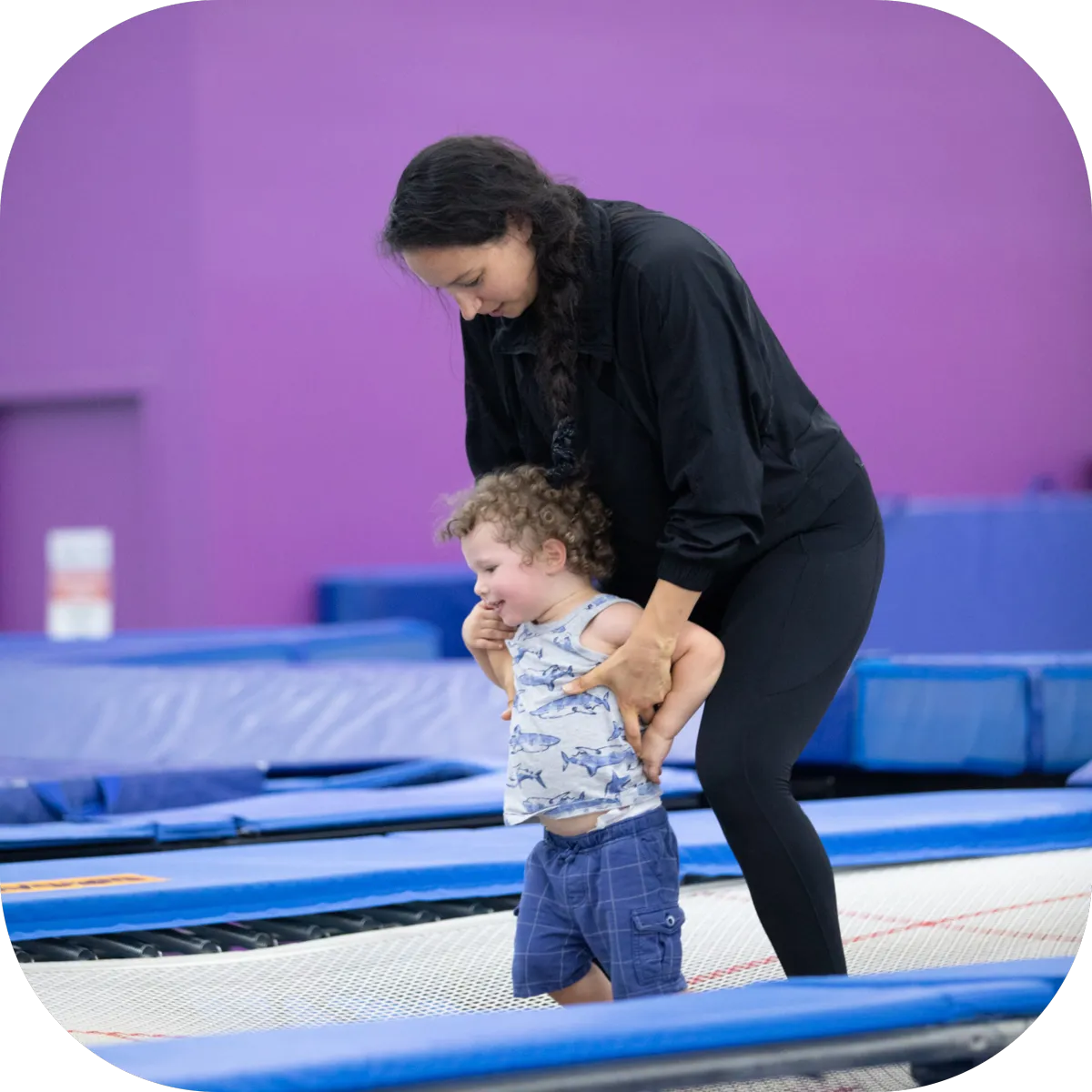
Pediatric Physical Therapy
Developmental pediatric physical therapy supports the unique abilities and needs of infants, children, and adolescents in Fort Worth, Aledo, and Parker County. This specialized therapy empowers kids to build on their strengths, navigate functional movement challenges, and engage more fully in the activities they enjoy, fostering growth, confidence, and independence.

Adaptive Gymnastics
Adaptive gymnastics adjusts traditional gymnastics skills, progressions, and equipment to build upon the strengths and unique abilities of neurodivergent individuals and those with physical or cognitive disabilities. This inclusive approach creates opportunities for all children to safely explore and enjoy gymnastics activities designed to support their growth and foster confidence.
Our Approach to Therapy & Gymnastics
Connection over Compliance
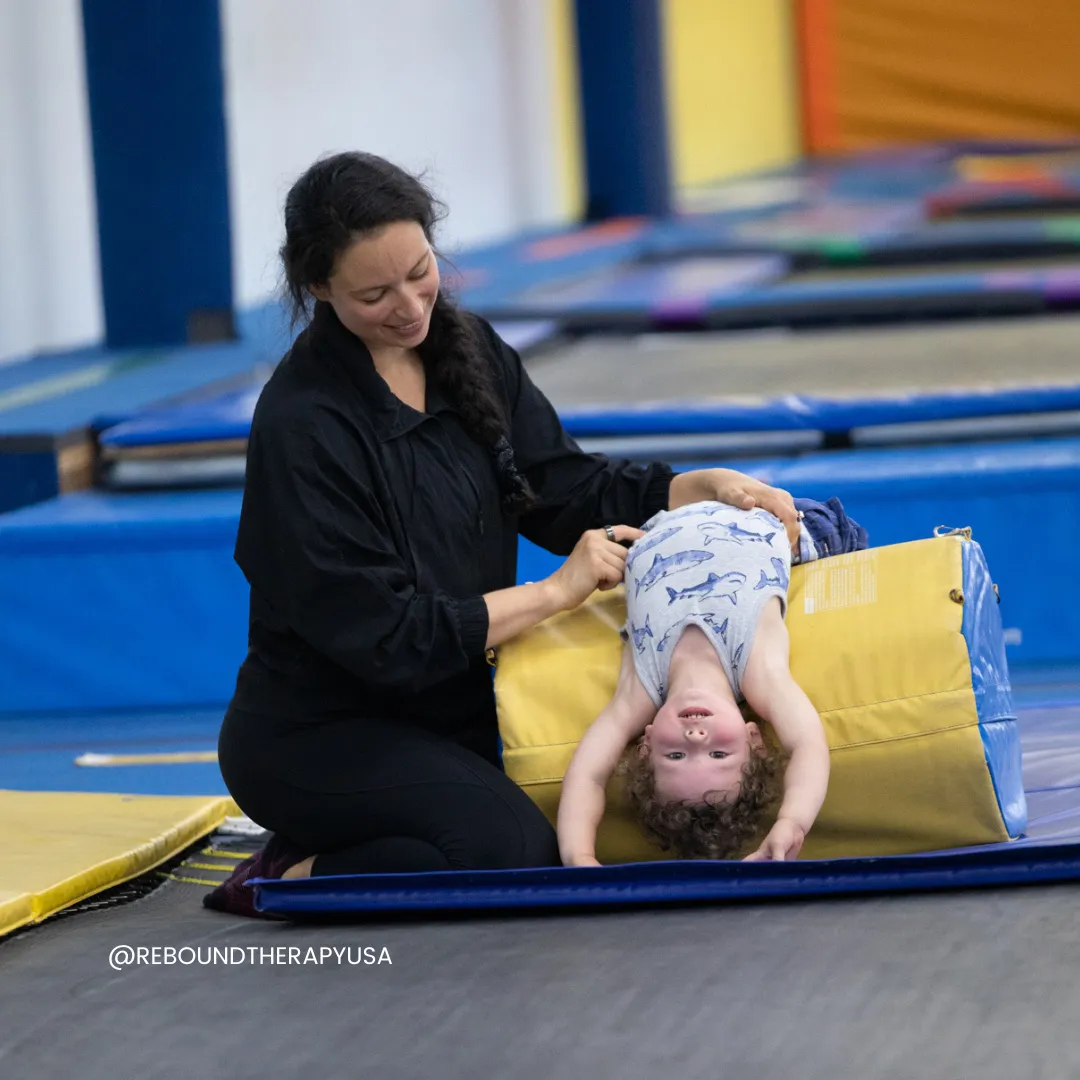
Parent Connection & Understanding
We start by understanding your child’s unique needs.
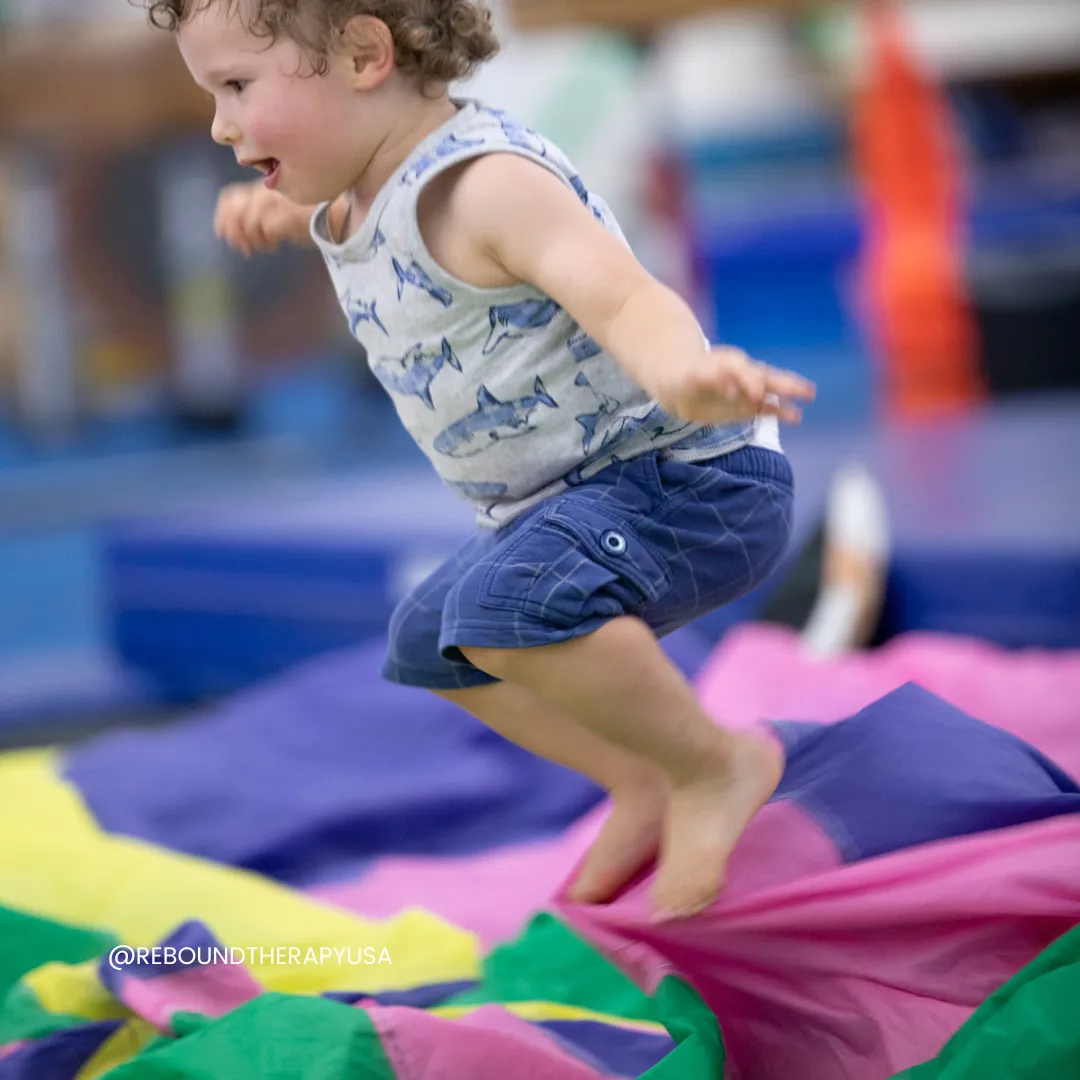
Personalied Plan
We create a tailored gymnastics program.
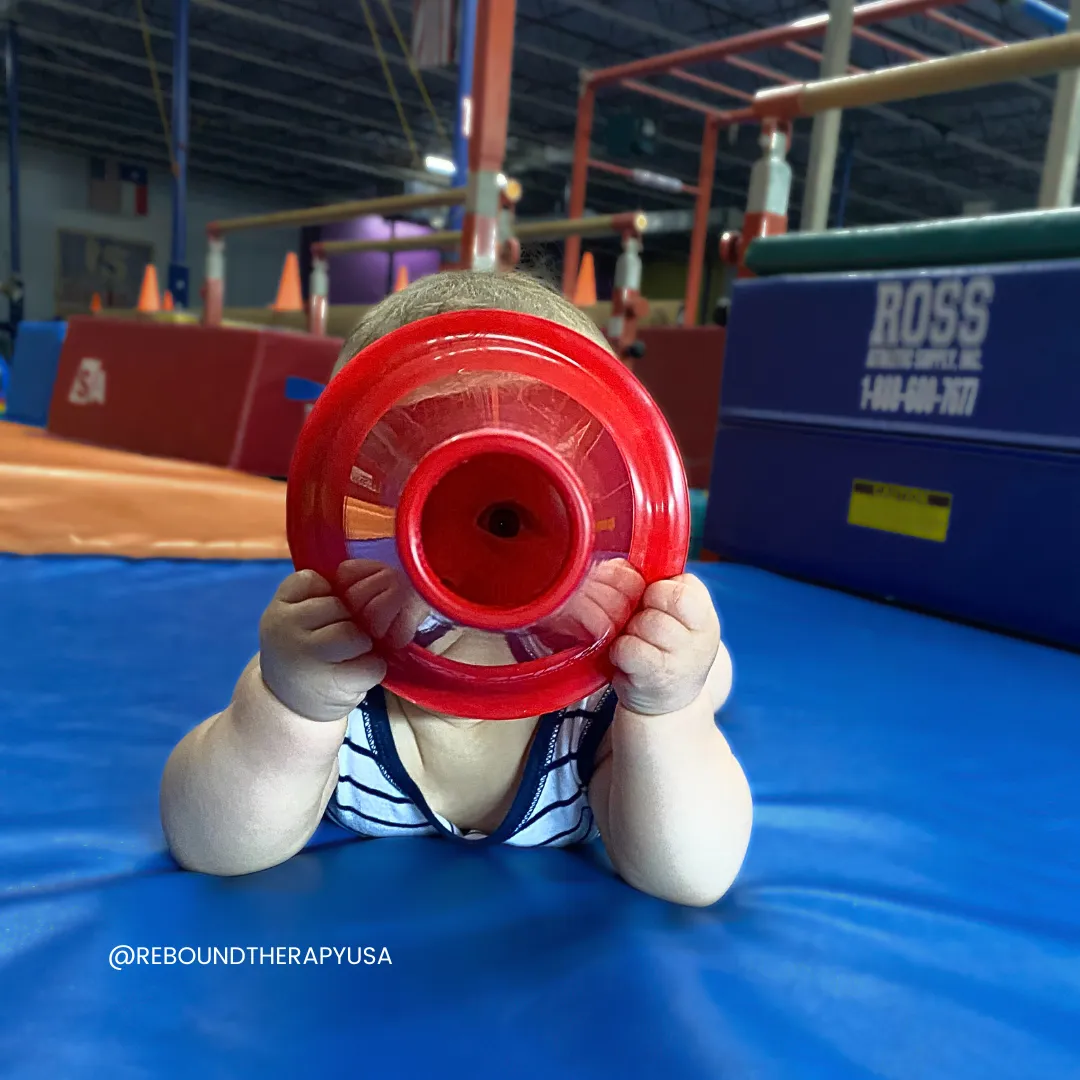
Ongoing Monitoring
We track progress and adjust the plan as needed.
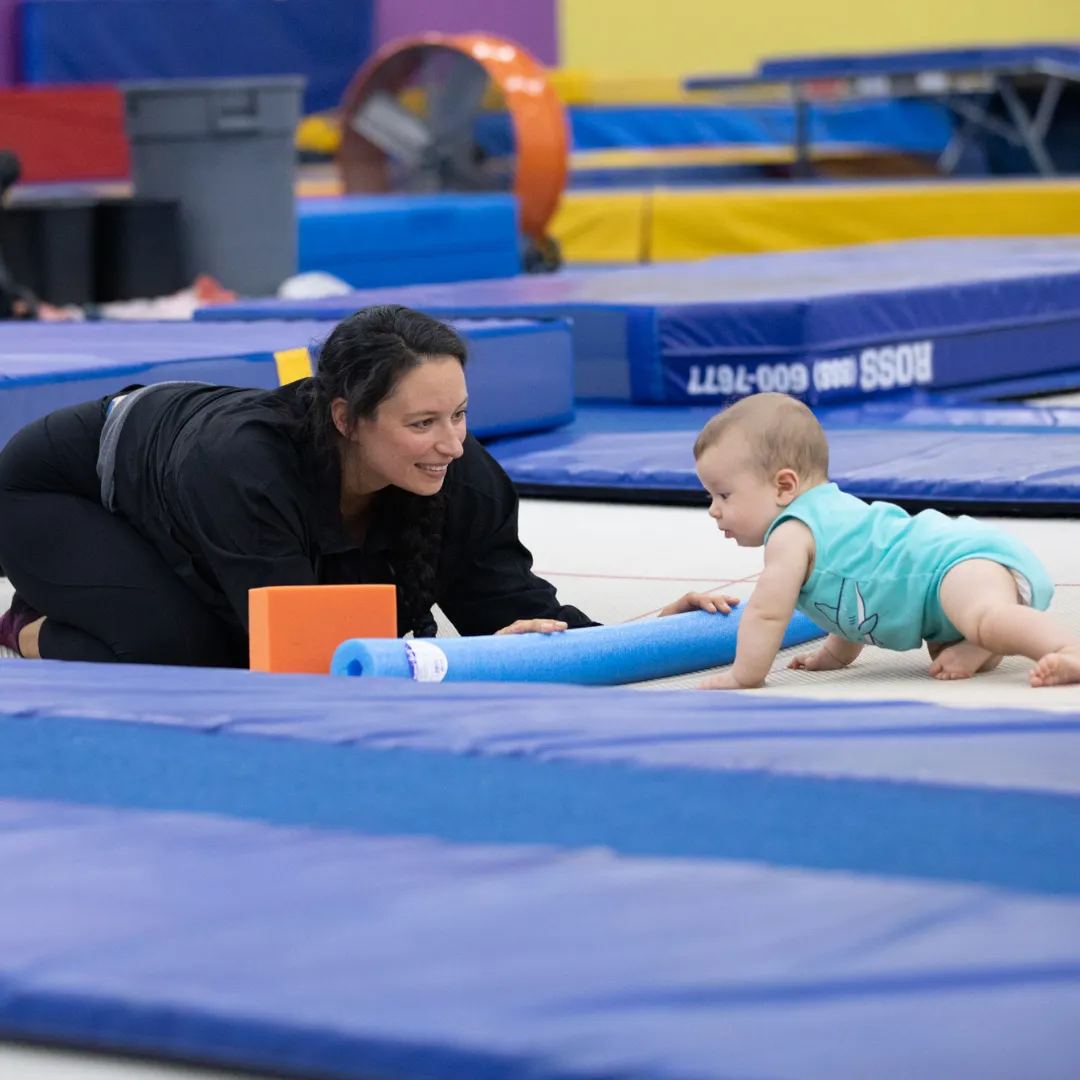
Fun & Engaging
Therapy and gymnastics that are enjoyable and supportive.
Who is Balanced Creations For?
Designed for children and families who have been told their child is too ____ to participate.
Too Unique
For children seen as too loud, too quiet, too sensitive, too emotional, or too unpredictable—we shift our perspective.
At Balanced Creations, these traits are part of the beautiful diversity of neurodivergence. We create a space where your child’s unique ways of communicating and experiencing the world are valued and celebrated.
Too Complex
For infants and children with developmental delays, complex disabilities, or conditions like congenital and neurological disorders—those told they’re “too disabled” for activities like jumping.
At Balanced Creations, we design personalized plans that empower children to explore their abilities, grow, and achieve independence—because no goal is out of reach.
Too Determined
For the families who were told, "Your child will never ___," and chose to believe that anything is possible.
Whether your child is working toward rolling, sitting, standing, walking, running, jumping, or more intricate movement patterns, we’re here to support their journey—and yours.
Why Choose Us for Your Child’s Therapy & Wellness?
With years of experience, we create meaningful change for children and their families.
Expertise
Decades of experience in gymnastics and 8 years of pediatric physical therapy
Individualized Play
Child-led, neurodiversity-affirming, play-based learning in a gymnastics environment or your home.
Inclusive Space
Safe, welcoming environment where every child feels seen, heard, and valued.
Empowering
We partner with and educate parents to create lasting progress and confidence.
You have questions? We have answers.
What is Adaptive Gymnastics?
Adaptive gymnastics is designed to make gymnastics accessible and enjoyable for individuals with diverse physical, cognitive, and sensory abilities. This approach includes modifications to skills, equipment, and teaching techniques to meet the specific needs of participants. These modifications might include specialized apparatus, adjusted lesson plans, and personalized coaching strategies to support each individual's abilities and goals. The primary aim is to create a supportive and inclusive environment where every participant can engage in gymnastics activities, build skills, and experience the physical and social benefits of the sport.
Benefits:
Enhances motor skills and coordination
Builds physical strength and flexibility
Provides opportunities for social interaction and teamwork
Fosters self-confidence and personal growth
Promotes sensory integration and regulation
Encourages active participation in physical activity
Supports the development of life skills, such as following instructions and working in a group
Creates an inclusive and supportive environment that celebrates diverse abilities
Adaptive Gymnastics Options
1:1 Adaptive Gymnastics or Adaptive Trampoline Lessons: We offer personalized 1:1 adaptive gymnastics and trampoline lessons to cater to the individual needs of each child. These sessions are customized to enhance gymnastics skills, build confidence, and develop motor abilities in a supportive and engaging environment. They can serve as a support or addition to your child’s therapy services, helping them progress in their gymnastics journey.
Adaptive Gymnastics Class (4:1 Ratio; Student to Teacher): Our Adaptive Trampoline Class is designed for children with physical and cognitive disabilities and neurodivergent children. With a low student-to-teacher ratio of 4:1, we ensure personalized attention and a safe, inclusive space for all participants to enjoy the benefits of trampolining. (This class is provided in partnership with The Rock of Sports & Performing Arts)
If you would like to participate in Adaptive Gymnastics, please contact us for more information via the contact form, schedule a consult call, or call/text (214) 500-0126.

What is Pediatric Physical Therapy?
Pediatric physical therapy focuses on addressing the unique needs of infants, children, and adolescents who experience delays or challenges in their functional movement and participation development. Physical therapy is designed to optimize motor skills, movement patterns, and overall physical function to support a child's unique growth and development.

What can physical therapy address?
At Balanced Creations Therapy & Trampoline, our developmental pediatric physical therapy services cover a wide range of conditions and concerns, including but not limited to:
Motor Delays: Addressing delays in gross motor skills such as rolling, sitting, crawling, standing, and walking, running, jumping, hopping, skipping, navigating stairs and environments.
Neurological Conditions: Providing interventions for children with neurological conditions such as cerebral palsy, spina bifida, and developmental coordination disorder.
Orthopedic Conditions: Managing musculoskeletal conditions such as torticollis, plagiocephaly, and toe walking.
Genetic Disorders: Supporting children with genetic disorders that impact their physical development and mobility.
Sensory Integration and Executive Functioning: Addressing sensory processing and motor planning difficulties that affect a child's ability to participate in daily activities and movement.
Balance and Coordination: Improving balance, coordination, and postural control to enhance functional mobility and participation in activities.
Through individualized assessment and treatment plans, our developmental pediatric physical therapists work collaboratively with families to achieve meaningful goals and support each child's unique journey to reaching their full potential through child-led play-based sessions in a neurodiversity-affirming environment.

What can I expect at the physical therapy initial evaluation?
This is a one-on-one, in-depth evaluation consisting of an age-appropriate analysis of posture, balance and coordination, flexibility, strength, mobility skills, transitional movements, quality of movements, motor planning, gait/walking quality, and higher-level gross motor skills, if appropriate. You will receive a written report with observational and standardized results outlining your child's strengths and areas that could be improved with physical therapy, demonstration and collaborative education on purposeful play-based activities to be completed throughout the day specific to your child and home, a detailed home exercise program complete with pictures and videos specific to your child and their gross motor goals (as needed), a list of developmentally appropriate toys specific to your child and their goals (as needed), and ongoing concierge support via phone/text/email to ensure success.

Do I need a referral to begin services?
No, a referral is not required to get started with our services. In the state of Texas, a physical therapist can evaluate and treat for up to 10 business days without a referral. If physical therapy services are expected to extend past this period, Balanced Creations Therapy & Trampoline will reach out to your primary care provider to obtain a referral for you.
Additionally, our Developmental Playgroups are considered wellness services and do not require physician approval to attend.

Do you take insurance?
No. Our goal to help your child be their unique self without limits, especially without limitations placed by insurance providers regarding number of visits and when those visits can be utilized. As an out-of-network provider there are no requirements to qualify for therapy, waitlists, prior authorizations, or session caps. All costs are known upfront; those unexpected bills months after rendered services won't happen here!We do not accept insurance, however can take HSA/FSA as payment. We will create a superbill or invoice upon request if you wish to submit for reimbursement through your insurance however reimbursement is not guaranteed.

Do you offer home visits?
Yes! We are a mobile provider and bring purposeful play-based and child-led development to you! In-home visits are available for Aledo, Annetta, Willow Park, Hudson Oaks, Weatherford, Azle, Texas. If you're ready to book an in-home visit you can do so via our online booking website. If you're outside of the above areas we are happy to help, please contact us via the contact form, schedule a consult call, or call/text (214) 500-0126.

Where are your clinic locations?
We offer physical therapy and developmental/therapeutic playgroups services at two locations: The Rock of Sport and Performing Arts (76087), and Springbox Farms (76087).
For more information, please contact us via the contact form, schedule a consult call, or call/text (214) 500-0126.

What form of payment do you accept?
Payment is due at the time of service.
Credit card (Visa, Mastercard, Discover, and American Express), debit card, and HSA/FSA cards are accepted.
Cost of services:
Please contact us for pricing via the contact form, schedule a consult call, or call/text (214) 500-0126.

What age range do you work with?
We cater to children of all ages, typically ranging from infancy to 18 years old. However, we are also equipped to serve adult individuals who may benefit from our services.

What are your hours of operation?
Our hours of operation vary depending on the day of the week and the facility location. Generally, we schedule treatment sessions between 9:00 am and 4:00 pm Wednesday, Friday & Saturday at The Rock of Sports & Performing Arts, and 10:00 am -6:00 pm on Tuesday & Thursday at Springbox Farms. For specific availability and scheduling questions, please feel free to contact us directly if you need more help. For availability and scheduling inquiries, please contact us via the contact form, schedule a consult call, or call/text (214) 500-0126.
How long will it take for my child to achieve their goals?
It depends. For more wellness based preventative care, typically, we see families for approximately 2-4 sessions. In some cases, with musculoskeletal concerns and/or gross motor delay with a co-occurring medical diagnosis, the length and frequency of services can vary. We individually create care plans and frequency of services to meet the needs of each child and the family's values. When families are committed to the process, we usually see steady improvement. Families who get the best results are those who work diligently and patiently with their child daily and focus on purposeful play-based activities throughout the day — change is hard and progress is rewarding! If there is a functional plateau or if the situation worsens, we refer to another provider either in addition to our services or instead of our services.


Max Tanner

Lorem ipsum dolor sit amet, consectetur adipiscing elit. Quisque nisi nunc, tincidunt non nibh non, ullamcorper facilisis lectus. Sed accumsan metus viverra turpis faucibus, id elementum tellus suscipit. Duis ac dolor nec odio fermentum

Max Tanner

Lorem ipsum dolor sit amet, consectetur adipiscing elit. Quisque nisi nunc, tincidunt non nibh non, ullamcorper facilisis lectus. Sed accumsan metus viverra turpis faucibus, id elementum tellus suscipit. Duis ac dolor nec odio fermentum
Hear From Our Clients
We offer financial
wings to let your
dreams soar higher
Lorem ipsum dolor sit amet, consectetur adipiscing elit. Quisque nisi nunc, tincidunt non nibh non, ullamcorper facilisis lectus. Sed accumsan metus viverra turpis faucibus, id elementum tellus suscipit. Duis ac dolor nec odio fermentum

Resources for Parents and Clinicians
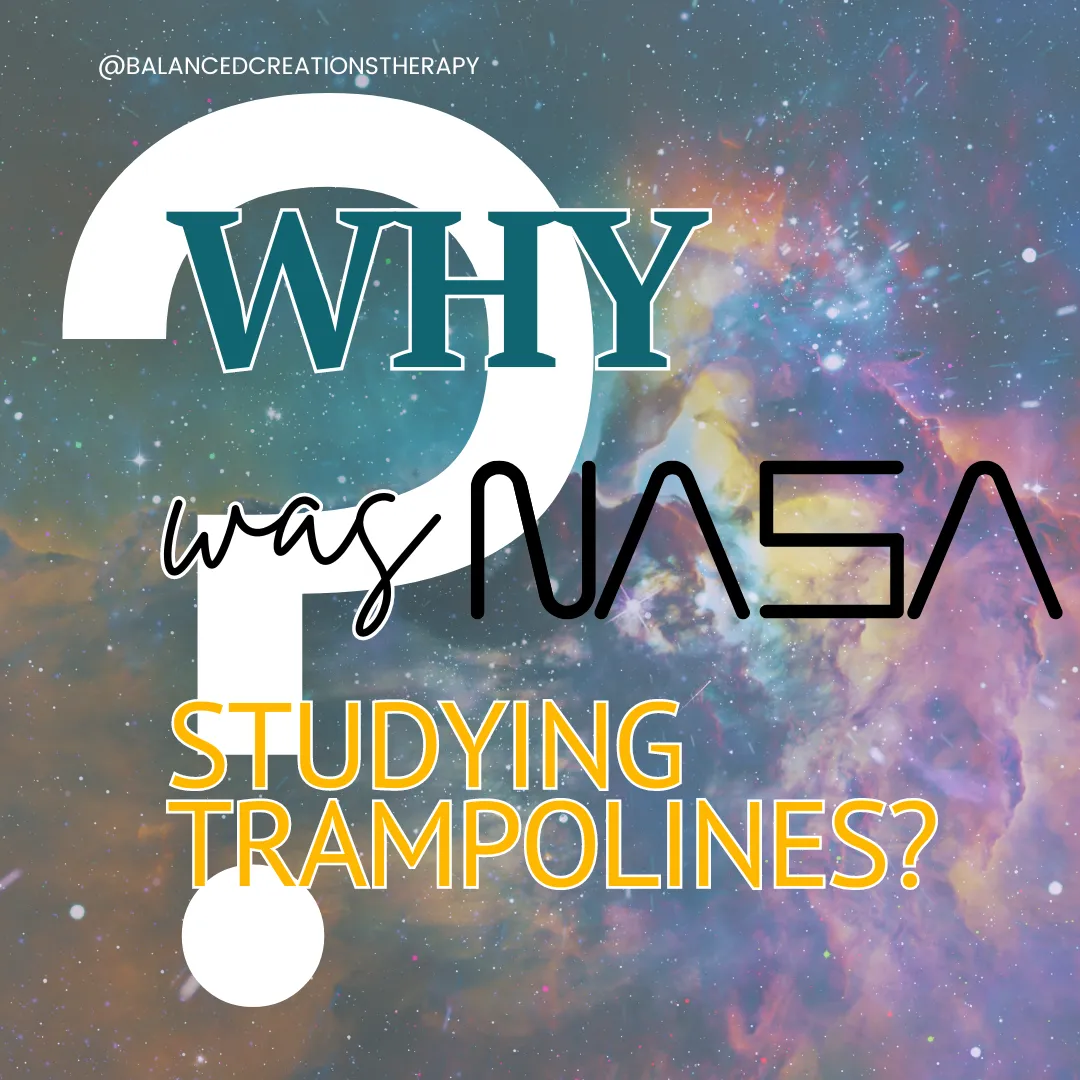
Why NASA Studies Trampolines: The Surprising Connection to Pediatric Physical Therapy and Developmental Movement
How NASA’s Trampoline Research Impacts Pediatric Physical Therapy & Rehabilitation
Introduction:
Trampolines are commonly seen as a source of backyard fun, but their potential benefits extend far beyond just entertainment. In the 1980s, NASA conducted a fascinating study on trampoline exercise that has since proven to have significant implications for pediatric physical therapy and developmental movement education. At Balanced Creations Therapy & Trampoline, we incorporate the benefits of therapeutic trampolining into our programs, helping children and individuals of all abilities achieve optimal wellness.

The Surprising NASA Trampoline Study:
In the 1980s, NASA conducted a study titled "Body acceleration distribution and O2 uptake in humans during running and jumping," exploring the biomechanical effects of trampoline exercise on the body. While the study may seem unconventional, its findings have valuable applications for rehabilitation therapy. The research delved into the impact of trampoline jumping versus running on human biomechanics, oxygen uptake, and heart rate.
The study involved eight male participants performing treadmill running and trampoline jumping at varying intensities. The researchers measured acceleration at different points on the body, including the ankle, back, and forehead. The results were fascinating:
Trampoline jumping induced greater biomechanical stress compared to treadmill running, making it an effective tool for rehabilitation programs focusing on improving strength, endurance, and cardiovascular fitness.
Acceleration forces were more evenly distributed during trampoline exercise, reducing strain on specific joints, which could help prevent injury.
The study also found that the frequency of acceleration during trampoline jumping was more consistent, providing smoother, more controlled movements compared to running.
These findings highlight why trampoline exercise may be a game-changer in pediatric physical therapy and rehabilitation.

5 Key Takeaways for Pediatric Rehabilitation Therapists Using Trampolines
Trampolines Induce Higher Biomechanical Stress:
NASA's research found that trampoline jumping imposes greater biomechanical stress on the body compared to running. This can be incredibly beneficial in helping kids improve musculoskeletal strength and cardiovascular fitness during therapy.Impact Forces are More Evenly Distributed on Trampolines:
Trampoline jumping transmits impact forces more evenly across the body, reducing the strain on specific joints. This makes it an excellent option for children undergoing rehabilitation for joint or muscle-related issues.Trampoline Offers Smoother & More Controlled Movements:
The frequency components of trampoline jumping were found to be more uniform compared to running. This means that movement patterns during trampoline exercise are smoother and more controlled, making it easier to integrate into therapy programs for children who are still developing motor coordination.A Unique Form of Stimulus for Therapy:
Trampoline exercise can provide a unique cardiovascular and muscular stimulus for children undergoing rehabilitation therapy. This is especially useful for children who are recovering from immobility due to illness or injury.Further Research Is Needed:
Although the NASA study provides valuable insights, it also indicates the need for further research to fully understand the long-term benefits and risks of trampoline therapy for specific rehabilitation protocols.


How NASA's Trampoline Research Can Enhance Pediatric Therapy:
At Balanced Creations Therapy & Trampoline, we take the insights from NASA's research and apply them to create pediatric physical therapy programs that are engaging, fun, and highly effective. Trampoline therapy helps children develop strength, improve coordination, and regain mobility in a controlled environment. The added benefit of developmental movement education makes trampoline exercises perfect for building lifelong physical and mental wellness.
Through our personalized trampoline programs, children learn essential motor skills, balance, and muscle coordination. We’ve seen firsthand how trampolining can promote confidence and empowerment in children, enabling them to take control of their physical health.

Conclusion:
NASA’s study on trampoline exercise opened up exciting possibilities for rehabilitation therapy, and at Balanced Creations Therapy & Trampoline, we’re proud to incorporate these findings into our therapeutic programs. By harnessing the biomechanical benefits of trampolining, we help kids achieve optimal wellness while having fun. Whether it's for building strength, improving mobility, or enhancing overall health, trampoline therapy offers a fresh and effective approach to pediatric physical therapy.
Further Reading:
For those interested in the details of the original NASA study, the article can be accessed here:
Bhattacharya, A., McCutcheon, E. P., Shvartz, E., & Greenleaf, J. E. (1980). Body acceleration distribution and O2 uptake in humans during running and jumping. Journal of Applied Physiology: Respiratory, Environmental and Exercise Physiology, 49(5), 881-887. Read the full article here.
Subscribe for Updates on Therapeutic Trampolining:
Want to learn more about how trampolining can benefit pediatric physical therapy and developmental movement education? Be sure to subscribe to our blog for future updates on therapeutic trampoline research and innovative therapy techniques. You can also follow us on Instagram @BalancedCreationsTherapy for more tips, updates, and behind-the-scenes content.
